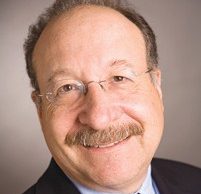
Henry Dubroff
What a difference a year makes in the fight against terrorism.
Fifteen months ago, the world witnessed an assault on freedom of the press when terrorists allied with ISIS attacked and murdered journalists from Charlie Hebdo, the satirical French magazine.
As millions of people mourned the 11 victims, some wondered if the magazine itself had gone too far by publishing images of the Prophet Muhammad.
In November we got a definitive answer when a group of radicalized shooters killed 130 people in Paris in indiscriminate attacks at a soccer stadium, cafes and a rock concert.
In December, a San Bernardino couple, apparently radicalized by ISIS teachings on the Internet, shot and killed 14 at a community center in the Inland Empire.
Then came Brussels. After police arrested a key figure in the Paris shootings who remained at large, bombs went off at the Brussels airport and in a subway station.
At press time we learned that the largest device brought to the airport by suicide bombers did not go off – perhaps a sign that the attack was hastily arranged after the arrest of attacker Abdel Abdeslam.
The meaning of these attacks for Southern California is clear – since Charlie Hebdo, ISIS has morphed into a terror organization that picks its targets without discrimination.
The new metric is an opportunistic calculation of destruction, publicity and terror. With a diverse population and as open a society as exists anywhere, Southern California, including the tri-county region, is likely to be high on the list for potential attacks in the U.S.
We have seen repeatedly that terror attackers operate in a cocoon of isolation. The Charlie Hebdo, Paris and Brussels attackers – as well as the Boston Marathon bombers – included brothers who could confide in each other and feed on each other’s radicalization.
In the San Bernardino attacks, it was a husband and wife who murdered innocent civilians and then died in a shootout with police.
An open and diverse society is also a strength. Belgian police are coming under criticism for their relative isolation from Brussels neighborhoods where a substantial network of Islamic radicals operated for months or perhaps years, under the noses of authorities.
The fact that it took four months after the Paris attacks to locate and arrest Abdeslam speaks to a community’s willingness to shelter a most wanted fugitive from authorities.
In the end, we will face more scrutiny at large airports like LAX, where an attack would be crippling to air service and commerce across much of the nation. And we will face more intense monitoring of electronic communication.
But until a global effort to tackle the terror problem takes place on a vastly larger scale, the attacks of Brussels and San Bernardino will become part of the way the world works.
At a time when we are all interconnected via smartphone, have access to amazing technology for health care and live amid unprecedented prosperity, that’s a sad commentary on life in the 21st century.
• Reach Editor Henry Dubroff at hdubroff@pacbiztimes.com.






 Print
Print Email
Email















